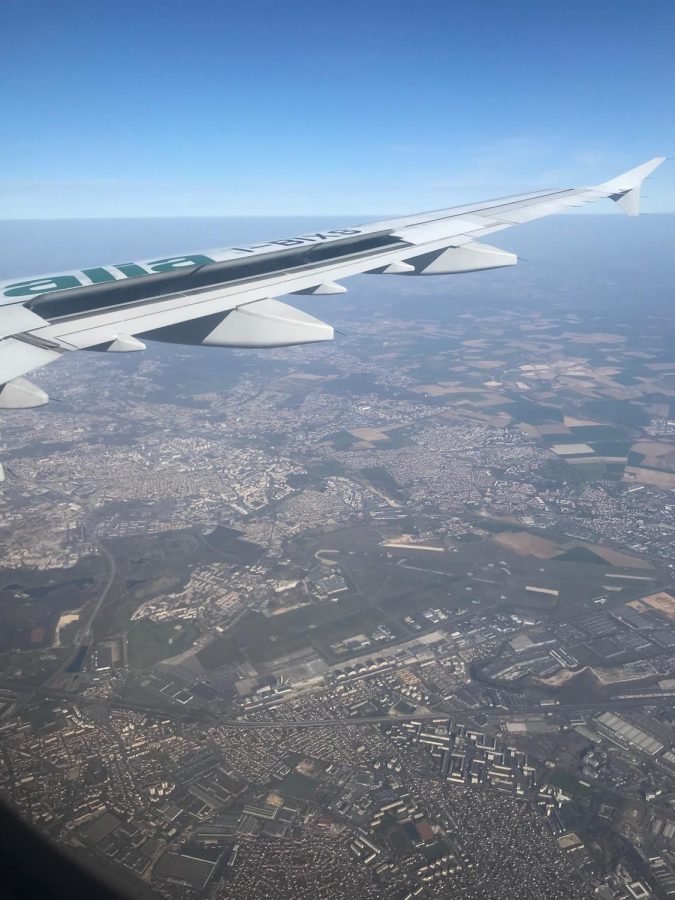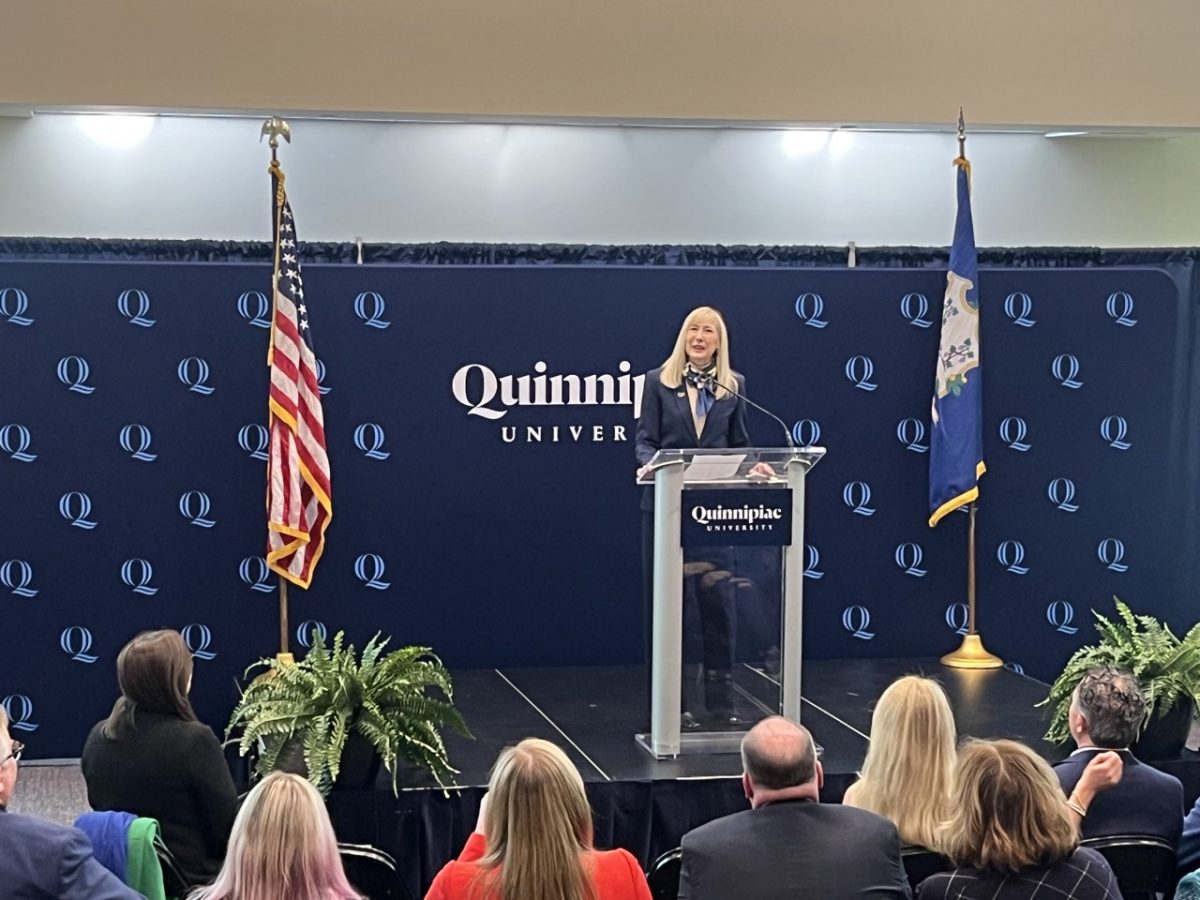Studying abroad at Quinnipiac
August 8, 2019
Study Abroad.
Most students hear this phrase and immediately think about a friend who took a four month “vacation,” not knowing the considerable amount of work that is put into the study abroad process.
Studying abroad focuses around immersing oneself into another culture while learning and experiencing new ways of life.
Students who are interested in studying abroad must first attend a series of meetings months before their anticipated departure date. They also must discover where they would like to go and why.
“The first step is research and coming to participate in an information session,” Associate Director of Education Abroad Mark Tortora said. “To provide information about what offerings we have.”
Students also have the misconception that studying abroad has to be a full semester.
“We have various programs students can engage in,” Tortora said. “We have short term programs for students, faculty led programs for students, we have global solidarity community engagement programs, semester based programs, and global internships.”
Once a student discovers where they would like to study abroad, mandatory meetings hosted by the Department of Cultural and Global Engagement tend to help students navigate and learn more about the application process before it begins.
The application process itself consists of filling out information not only for Quinnipiac’s Department of Cultural and Global Engagement, but also for a third party program if they are involved.
Third party programs help students enroll in host universities, provide housing, and become reliable on-site resources when students need help in their host country. Such programs include APIAbroad or CISAbroad.
Similarly to Quinnipiac’s Department of Cultural and Global Engagement, these third party programs also require an application process. This process includes forms such as intent to enroll, code of conduct, passport and medical information.
Virtually, a student can be filling out two separate applications depending on where and for how long they have chosen to study abroad. This means many hours of work can be put into a study abroad program before departing and can often be tedious.
“As far as the application process for study abroad goes, it most definitely was tedious and extensive,” a rising junior, Deirdre Cunningham, said. “However, I think that the extensiveness of the process is necessary to attract the right people and people who really want the opportunity.”
Cunningham, who spent this past spring semester in Australia, recalls wishing there was more guidance during the process, but she never had any direct issues with the Department of Cultural and Global Engagement.
“If I could change anything about the process, it would be to provide more guidance when it came to picking classes and courses,” Cunningham said . “I wish former students who had studied in Australia gave more guidance on what to do when you feel homesick and more of the negative aspects of abroad.”
Guidance is also something Tortora believes his department could improve upon.
“It is hard when you don’t have a lot of resources. There’s always improvement needed. There is a lot to keep up on with technology and so forth,” Tortora said. “Getting the information out there has been hard because of the lack of resources.”
Rising junior, Megan Cain, recently just completed the application process. She plans to spend this fall semester in Florence. Like Cunningham, she found the application process tedious but manageable.
“Quinnipiac’s application was fairly manageable but it took me a while to complete because I had to go over a lot of stuff with my parents which was hard while I was at school,” Cain said.
In addition to finding the application process manageable, Cain also expressed her like for the checklist on the QU study abroad portal.
“The best part of the application process was the checklist on Qus study abroad portal. That made it very clear what I had done and what I still needed to do,” Cain said. “I also was able to give my parents the login info so they could look at it with me to help with the process.”
Even though Cain found the process tedious, she believes the time spent on it is worth it. She is looking forward to spending her semester abroad and being able to experience new things.
Both Cain and Cunningham also believe Quinnipiac’s study abroad program enables students to find a new sense of independence.
“My favorite aspect was the independence and being away from home. I was able to navigate a whole new city in a brand new place,” Cunningham said.
Quinnipiac’s study abroad program focuses on the students and tries to find what will work best for them. They want each student to be excited and prepared before they set off on their journey.
“We are very adamant about global education and we see the value of students participating in these immersion programs and we see the value of what students could get out of it,” Tortora said.
Anyone who is interested in studying abroad can find more information at https://educationabroad.qu.edu.







